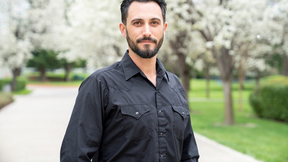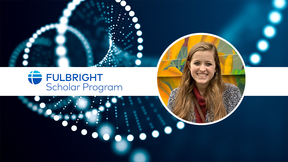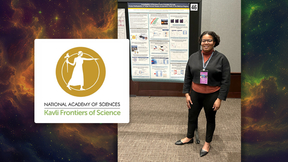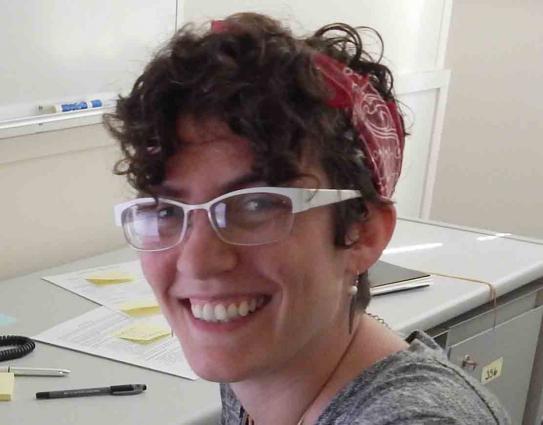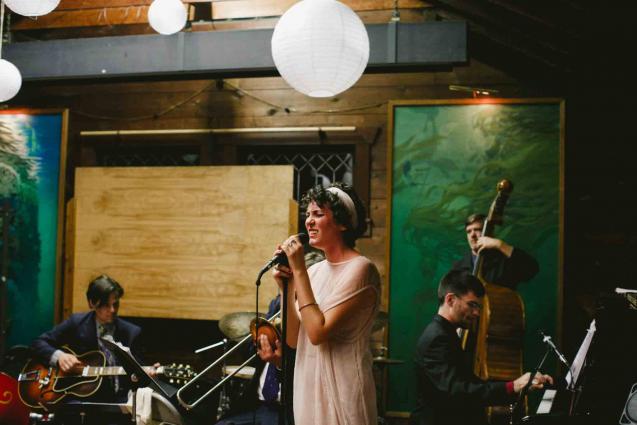Meet Alison Dreyfuss: future nuclear physicist
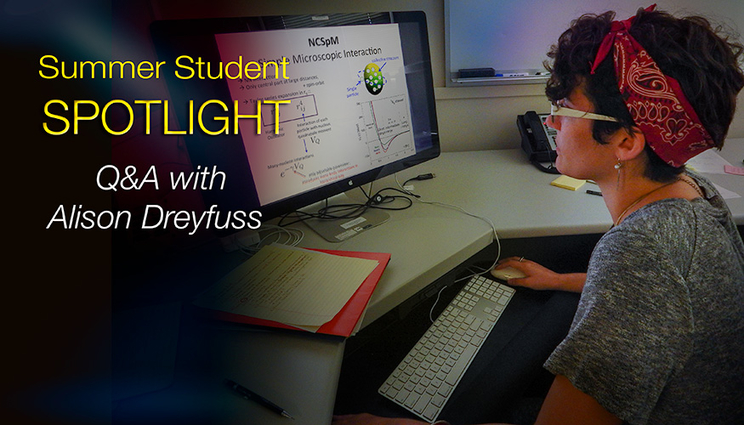 (Download Image)
Alison Dreyfuss is pursuing a doctorate at Louisiana State University. Upon graduation, she hopes to work as a nuclear physicist, guide young people interested in physics and serve as an advocate for women and minorities in the field. Photo by Julie Russell/LLNL
(Download Image)
Alison Dreyfuss is pursuing a doctorate at Louisiana State University. Upon graduation, she hopes to work as a nuclear physicist, guide young people interested in physics and serve as an advocate for women and minorities in the field. Photo by Julie Russell/LLNL
Editor's Note: This is one in a series of articles highlighting the diverse group of Lawrence Livermore National Laboratory summer students.
______________
The Lawrence Livermore National Laboratory (LLNL) student internship program is designed to allow students to engage in work-study employment opportunities in relevant science, technology, engineering, mathematics (STEM) and administrative fields during the summer academic break. This year, LLNL is proud to welcome more than 600 students from universities nationwide and around the world.
Introducing: Alison Dreyfuss
Full name: Alison (Ali) Dreyfuss
Hometown: Keene, New Hampshire
University attending/educational background: Ph.D. candidate at Louisiana State University (LSU)
Major: Physics
Minor/focus: Theoretical nuclear physics
Graduation year: 2018
LLNL Directorate you are working in: Weapons and Complex Integration (WCI)
What interested you in pursuing a summer internship at the Laboratory?
It was suggested to me by my adviser at LSU, Kristina Launey, and it seemed like a great opportunity to learn and make new connections with folks in the physics field. I’m excited to be working on a project in a field that is entirely new to me, while also being able to interact with nuclear physicists doing cutting-edge research in my field. This kind of intersection of great work creates a unique opportunity for learning.
What are you working on at the Laboratory?
I am studying phenomenological mix models in 1- and 2-D simulations of laser-driven shock-shear experiments; specifically, the effect of the mix model on mix layer development. The goal is to help inform designs for laser-driven shock-shear experiments at, e.g., the National Ignition Facility.
What do you enjoy most about interning at the Laboratory?
I was initially very surprised (almost suspiciously) at the dedication the Lab has to the physical and mental well-being of employees. It’s a very low-stress, high-productivity environment that gives me the opportunity to do good work and make some great connections. I really think Lab policies are pretty ahead of the curve in this respect and it’s encouraging to know that work environments like this exist.
What have you learned (or are learning) that has made a difference to you?
Before I started work here, I knew next to nothing about hydrodynamics, certainly nothing about turbulence. My Lab mentor, Tanim Islam, has really made it easy to progress with my research while simultaneously learning the basics of the theory. I’m certainly not going to leave here an expert, but I’ll be able to hold my own. In addition, I’ve had the opportunity to attend a few seminars on nuclear structure theory, which have given me some helpful information regarding my future thesis work.
Where do you see yourself after graduation? What is your dream job?
This is a question I am still struggling with. I have a lot of interests and a lot of open doors, and it seems like more doors are opening all the time. Whatever I do, it’s going to involve guiding younger people interested in physics and advocating for/supporting women and minorities in physics. Whether those will be explicit parts of my job description or volunteer work, my future career will need to make space and time for it.
Who/what has inspired you to pursue an education and career in STEM?
I have had numerous people contribute to steering me down this path, and certainly I would not be half as successful as I have been without the support of my parents. However, there are three other people who have contributed to steering me down this path: my high school physics teacher, Susan Romano, whose energy and passion for physics could have inspired a rock to pick up a textbook and start reading; my undergraduate adviser in mathematics, Vince Ferlini, who first exposed me to formal research and suggested I apply to Research Experiences for Undergraduates (REU) programs, and who first told me that I was capable of pursuing a Ph.D. in physics; and my current adviser at LSU, Kristina Launey, who took me on as an REU student and introduced me to a really beautiful marriage of physics and mathematics in nuclear structure theory.
What has been your biggest challenge?
The biggest challenge for me has been the impostor syndrome, the sense that I am not really smart enough/good enough/hard-working enough to be in this community. Despite that, I just keep flying under the radar and progressing. I have to make a conscious effort to remind myself that my accomplishments are the result of the hard work I’ve put in. I have a great support group of friends who help remind me that I belong here, and that makes it easier.
What do you consider to be your biggest accomplishment?
I don’t know that I could pick one step in the process and say, "This here is the big one!" Passing my two semesters of graduate quantum mechanics is as much a source of pride for me as receiving an honorable mention for the National Science Foundation’s Graduate Research Fellowship Program or being accepted for the WCI internship here at the Lab.
As a college student, what is the most important lesson you have learned?
I have learned that the capacity to absorb information is essentially unlimited. Diversifying your interests by spending time to pursue hobbies will not somehow remove from your ability to succeed in your chosen career. I have no doubt that my choice to dedicate time to learning about things outside of my field has made me both a better person and a better physicist.
What advice would you give a high school student?
Get past being your own worst critic and become your best advocate. Having pride in what you’ve accomplished is not narcissism, and is, in fact, a necessary part of success. Also, make sure you build up the people around you, because we’re all struggling to be better self-advocates and it helps to have someone on your side.
What do you like to do in your spare time? What are your hobbies?
I sing in a swing band, play the ukulele (poorly), read about and eat fancy cheeses and spend a lot of time and energy wishing I had a dog named Charlie Barker. I’m also deeply interested in human rights advocacy; in particular, I am interested in learning as much as I can about intersectional feminism and what women’s rights conversations look like around the globe.
What is next for you/what are you looking forward to?
I'm a little less than halfway through my graduate program, so the future is still up in the air for me. Whatever I end up doing, whether I stay in academia, work in the private sector, or work for the government, I know that I want teaching and mentoring students to be a part of my work. Before I get that far, though, I'll focus on getting past my general exam and thesis defense.
Dreyfuss’ last day at the Laboratory was Aug. 21.
_________________
To learn more about summer internships and the Laboratory’s scholar programs, visit the scholars@llnl website.
Follow inside LLNL on Twitter for an inside look at the people and events at LLNL.
Contact
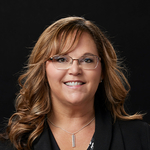 Carrie L Martin
Carrie L Martin
[email protected]
(925) 424-4715
Related Links
Louisiana State UniversityLLNL student internship programs
Inside LLNL on Twitter
Tags
Academic EngagementSTEM
Summer Student Spotlight
Women in STEM
Careers
Community Outreach
Featured Articles
